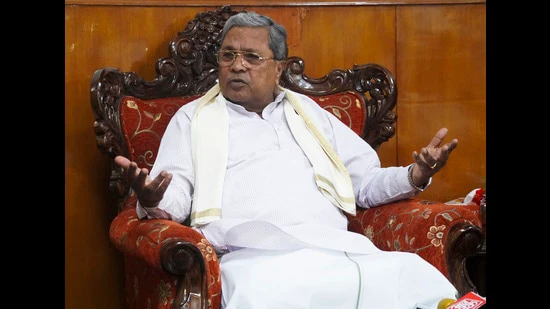The state government will conduct a comprehensive socio-educational survey, or more popularly known as the caste survey, covering its entire 70 million population from September 22 to October 7, chief minister Siddaramaiah announced on Wednesday, positioning the exercise as a “model for the entire country.”
The 15-day survey, proposed by the Karnataka State Commission for Backward Classes, aims to gather data on economic status, land ownership and social identity to serve as the foundation for the state’s next budget and policy decisions.
“The main objective is to eliminate caste-based discrimination,” Siddaramaiah said during a preparatory meeting. “A comprehensive survey must be conducted on the financial condition of every individual, including whether they own land. The report will be used as a basis during the preparation of the next budget.”
The fresh survey addresses mounting criticism of the previous Socio-Economic and Educational Survey, with influential communities-particularly Vokkaligas and Veerashaiva-Lingayats-demanding the earlier report be scrapped due to alleged underrepresentation.
The Congress decided to conduct the new survey during a high-level meeting in New Delhi on June 10, responding to complaints from communities that claimed they were either excluded or underrepresented in the previous exercise.
“Preparations such as training must begin right away. The survey must be carried out very effectively, and precautions should be taken to ensure that there are no grounds for complaints,” Siddaramaiah emphasised on Wednesday. “It must be ensured that no one is excluded from this exercise.”
Unlike the previous Kantharaj Commission survey, which used 54 questions and was conducted manually, the new exercise will use mobile applications and include additional components. Officials have been directed to study the methodology used in Telangana’s similar survey.
“That commission had prepared 54 questions and conducted the survey manually. This time, we are looking into the inclusion of more components. The survey will be carried out using a mobile app,” the chief minister said.
The massive undertaking will require 165,000 enumerators, including teachers and staff from various government departments. “All departments must work in coordination to make this a success,”
A high-level oversight committee will supervise implementation, with special planning for urban areas.
“A specific plan must be drawn up for conducting the survey successfully in the Bengaluru urban region,” he added.
The chief minister stressed the need for scientific rigour and transparency: “The survey must be scientific and transparent. A panel of experts should help finalise the questions to be asked.”
The groundwork for Karnataka’s caste census was laid during Siddaramaiah’s initial tenure as chief minister through an extensive 2015 survey costing ₹162 crore. Although he announced acceptance of that report in June, its contents and release date remain undisclosed.
Leaked data from the earlier survey indicated Scheduled Castes accounted for 19.5% of the state’s population, followed by Muslims at 16%, Lingayats at 14% and Vokkaligas at 11%. Within the Other Backward Classes, the Kuruba community alone comprised 7% of Karnataka’s population, contributing to the OBCs’ overall representation of 20% in the state.
Collectively, these groups-including Scheduled Castes, Scheduled Tribes, Muslims and Kurubas-formed a substantial 47.5% of the population, findings that could significantly impact the state’s political landscape, according to federations of marginalised sections.
The final report is expected by the end of October and will directly influence budget allocations and policy formulations for the state’s diverse communities.
